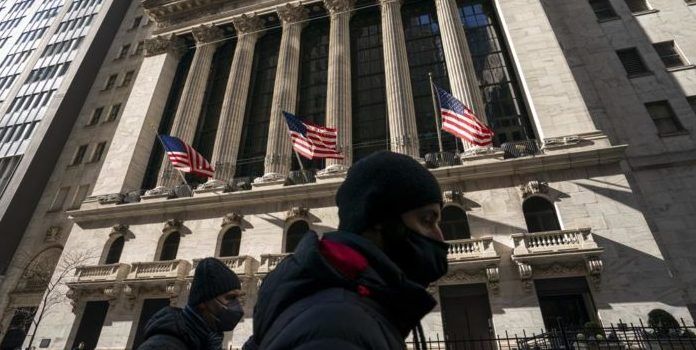(Molly Bruns, Headline USA) Facing mounting concerns over the threat of lawsuits, several major financial firms on Wall Street, as well as other top companies, have started rolling back their diversity, equity and inclusion practices—welcoming white, male employees and others who had previously been excluded, according to Bloomberg.
Reports indicated that Goldman Sachs Group Inc., Bank of America Corp., Bank of New York Mellon Corp. and several other institutions were encouraged by lawyers to drop discriminatory programs that offered preferential treatment to certain minorities.
Those programs and practices could potentially violate the Supreme Court’s ruling last June against affirmative action, or else invite test cases that would serve as corporate corollaries to the landmark reversal impacting educational institutions.
“We’re at an interesting inflection point,” said Ana Duarte McCarthy, former chief diversity officer at Citigroup, discussing the onslaught of woke social-justice initiatives that previously infected corporate culture.
“We’re not suggesting that things stop because there’s this fear factor,” she added. “But rather, take a look.”
The leftward shift was largely the byproduct of the controversial ESG movement, which saw major investment firms punishing companies that fell out of step with their progressive political agendas.
The wave hit its crescendo in 2020, as efforts to undermine the Trump administration cross-pollinated with outrage—some of it organic, some manufactured—following the fentanyl overdose of George Floyd while in police custody, and the months of urban race riots that ensued in its aftermath.
Many companies have been reluctant to abandon DEI practices altogether—publicly, at least. Privately, however, they have been making minor, almost imperceptible, tweaks to avoid legal and financial consequences from the turning tide of public sentiment.
“Are they doing it publicly? Vocally? Of course not,” said Subha Barry, former head of diversity at Merrill Lynch. “But they’re doing it. And when they do it, you have to listen.”
Annual filings in American finance revealed extensive changes to their diversity goals all around.
Lawyers advised executives at Goldman Sachs to remove any reference of race and gender in college recruitment programs, as well as events for specific identity groups.
JPMorgan previously hosted a summer fellowship program for black undergraduates, which they have since opened to all students “regardless of background.”
Companies also altered their internal goals and metrics.
Citizens Financial Group Inc. did away with their goal of having at least 50% of the candidates in mid- or senior-level roles be women or people of color.
While some recruitment programs are still aimed at women and people of color, and company executives still claim to be dedicated to the DEI cause, corporate America’s apparent “racial reckoning,” has come to a screeching halt.
“We’re past the peak,” Barry acknowledged.
The new shift in corporate strategy appears, in part, to be a response to conservative backlash to diversity standards and growing animosity among white employees, possibly leading to “reverse discrimination” lawsuits.
Former Trump adviser Stephen Miller’s America First Legal and Edward Blum’s American Alliance for Equal Rights have both been at the forefront of such efforts.
Blum, who was the lead lawyer in the pair of Supreme Court cases that reversed affirmative action, recently sued the Fearless Fund, a group that invests in companies owned and operated by women of color, saying that the group’s grants discriminated on the basis of race.
Meanwhile, billionaires such as Elon Musk and hedge-fund investor Bill Ackman have initiated a sort of reverse ESG by threatening to withdraw support from woke corporations—particularly those whose advancement of DEI-rooted, intersectional political objectives promote the censorship and discrimination of others.
The Musk-owned Tesla recently removed language about minority workers from a regulatory filing, and Ackman helped pressure Harvard University to backtrack on its anti-Semitism following Hamas’s Oct. 7 terrorist attack on Israel.
Headline USA’s Ben Sellers contributed to this report.

